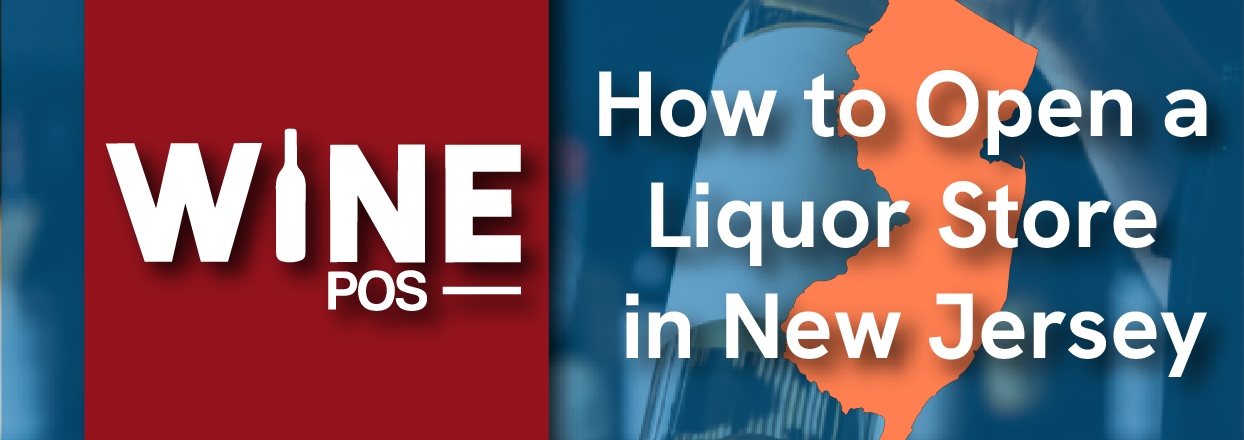The liquor industry generated an impressive $5.32 billion in sales as of January 2021. Profit margins range from 200% to 400%, making a liquor store business a great chance for success.
Starting a liquor store in NJ needs careful planning and substantial investment. Setup costs typically range from $50,000 to $100,000. This amount covers simple setup expenses and inventory. New Jersey’s liquor license fees vary between $200 to $500, and processing can take 40 days to six months.
Liquor stores prove to be recession-proof businesses that show strong sales even during economic downturns. Determined entrepreneurs can earn between $100,000 to $150,000 annually on average.
This detailed piece outlines what you need to open a liquor store in NJ. You’ll learn about securing licenses and setting up operations with modern tools like WinePOS systems. Let’s discover the quickest way to build a thriving liquor store business in the Garden State.
Understanding NJ Liquor License Requirements
New Jersey’s Division of Alcoholic Beverage Control (ABC) manages a complete licensing system to regulate liquor store operations.
Types of Licenses Available in New Jersey
The ABC classifies licenses into five distinct categories. Class C retail licenses matter most to liquor store owners. Liquor store owners can choose from these options:
- Plenary Retail Distribution License (Type 44): For exclusive package goods sales
- Limited Retail Distribution License (Type 43): For selling warm beer and malt beverages
- Plenary Retail Consumption License (Type 33): Allows both on-premises consumption and package goods sales
- Plenary Retail Consumption License with Broad Package Privilege (Type 32): Offers more flexible package goods sales options
On top of that, New Jersey restricts retail licenses based on population. Each municipality can have one license per 3,000 residents. This makes these licenses both rare and valuable.
Application Process and Timeline
You need to follow several crucial steps to apply for a license. The first step is to find an available license, which usually comes through transfer from existing holders. The process then requires you to:
- Submit a 12-page application with original signatures
- Publish notices in local newspapers
- Get tax clearance certificates
- Complete background checks
- Participate in public meetings
License transfers take 30 to 120 days to complete. You must also pay specific fees: 10% of the annual renewal fee applies to person-to-person transfers, plus USD 200 for state processing.
Common Application Mistakes to Avoid
Applications often face delays or rejections due to incomplete documentation and eligibility problems. You must meet these requirements:
- Be at least 18 years old
- Have a clean criminal record
- Hold interests in no more than two retail licenses
- Not work as a law enforcement officer
WinePOS and similar modern POS systems help businesses comply with ABC regulations through automated record-keeping and inventory management. These systems make operations smoother once you secure your license.
Tax clearance certificates are essential for local municipalities to approve license transfers. Licenses must remain in their original municipality – you cannot transfer them between different towns.
Calculating Your Startup Costs
You’ll need deep pockets to start a liquor store in New Jersey. A full picture of costs will help you create realistic business plans.
License and Permit Fees in NJ
The simple state filing fee starts at $200, plus local authority fees that go up to $2,500 annually. License costs vary substantially based on your location and availability. You’ll need to pay $200 plus municipal fees each year for renewal.
New store owners have two paths: they can buy an existing license or apply for a new one. Existing licenses can cost a fortune, sometimes hitting $1 million in popular areas. The NJEDA’s grants up to $100,000 cover 50% of license purchase costs if your small business qualifies.
Location and Lease Expenses
Property costs make up much of your startup expenses. Your monthly lease depends on:
- Store’s visibility and foot traffic
- Available parking space
- Building’s condition
- Local market rates
Smart owners look beyond rent and set aside $20,000 for simple renovations and shelving installation. You’ll also need security systems and proper lighting.
Initial Inventory Investment
Your first stock investment runs from $35,000 to $100,000. This money goes toward:
- Various alcohol categories
- Non-alcoholic items
- Store accessories
- Display equipment
WinePOS systems make inventory management easier with automated tracking and reordering features. Monthly stock costs typically run between $60,000 to $100,000.
A liquor store in NJ needs at least $50,000 to $100,000 to get started. This covers simple setup costs, permits, and initial stock. Building relationships with wholesale distributors quickly helps you maintain competitive pricing.
Insurance coverage is vital to your success. Your liability insurance and worker’s compensation can run several thousand dollars yearly. The investment is substantial, but liquor stores have shown strong staying power during tough economic times.
Choosing Your Store Location
Choosing the right location is the life-blood of any new liquor store in New Jersey. The Division of Alcoholic Beverage Control (ABC) keeps strict oversight of store placement and operations.
NJ Zoning Requirements
Local zoning laws strictly regulate liquor store locations. ABC must pre-approve any new store location. Store owners need to get municipal zoning clearance before they can apply for licenses. A real estate lawyer’s guidance proves valuable when navigating these requirements.
ABC enforces specific rules about how close stores can be to schools, churches, and other alcohol retailers. Municipal authorities can file objections against new store locations. Store owners should research local ordinances thoroughly before signing any lease agreements.
Demographics Analysis
Market research shows several key demographic factors that affect store success:
- Household income distribution and spending patterns
- Population density and age groups
- Vehicle ownership rates
- Education levels and employment statistics
Bergen, Middlesex, and Essex counties have the highest concentration of liquor stores in New Jersey. The state’s retail sector has over 405,786 workers. Urban areas show strong associations between retail alcohol density and population demographics.
Competition Assessment
The Beer, Wine & Liquor Stores industry in New Jersey will grow to $5.20 billion through 2025. In spite of that, competition analysis must look at:
Most customers come from specific geographic zones. Smart owners analyze daily traffic patterns and accessibility. WinePOS systems track customer demographics and purchase patterns that help optimize inventory based on local priorities.
Urban areas show different competitive patterns compared to suburban or rural locations. The market has higher retail density in urban census tracts, with about 7.4 outlets per 1,000 people. Suburban areas average 4.8 outlets per 1,000 people.
Store visibility and parking availability affect customer traffic substantially. A complete market analysis looks at nearby competitors’ strengths and finds potential market gaps. Making use of information helps pick the best store location and target customer segments.
Setting Up Business Operations
A successful liquor store operation in New Jersey starts with the right business setup. The ABC division keeps strict oversight of all alcoholic beverage businesses through systematic regulations.
Legal Structure and Registration
Store owners must pick the right business structure at the start. Here are the main options:
- Sole Proprietorship: Easy to set up but doesn’t protect personal assets
- Limited Liability Company (LLC): Protects personal assets with tax benefits
- Corporation: Best protection and great for raising capital
- Partnership: Lets multiple owners share the business
The state requires business formation documents to register. Store owners just need to get an Employer Identification Number (EIN) for tax purposes. The ABC wants full disclosure of everyone who has interests in the license during transfers.
WinePOS System Implementation
WinePOS is a specialized point-of-sale system built for wine and liquor stores. The system has been around for over 40 years and offers complete inventory tracking and sales management tools.
The system has these key features:
- Automated inventory management
- E-commerce integration
- Payment processing solutions
- Marketing tools
- Order syncing capabilities
Store owners love WinePOS’s “Closed Loop” system that connects in-store and online sales. The Docupiler feature turns vendor invoices into purchase orders automatically, so there’s no manual data entry.
Inventory Management Systems
Good inventory control can make or break a liquor store’s success. Modern systems help track thousands of SKUs automatically. These platforms give you:
Stock forecasting helps predict what customers will buy. When you have multiple stores, the catalog syncs live inventory updates across locations. Store owners save an hour each day per location with automated systems.
The ABC wants strict inventory control and proper records. Store owners can keep accurate sales data and perfect stock levels through integrated POS systems. Age checks and detailed sales reports help with audits and taxes.
The key to success is picking systems that grow with your business. WinePOS works great for businesses of all sizes, from single stores to multiple locations. The inventory tools also come with custom dashboards that show how your store performs instantly.
Building Supplier Relationships
Strong relationships with wholesale distributors play a crucial role in running a successful liquor store. New Jersey uses a three-tier alcohol distribution system where manufacturers sell to wholesalers who supply retailers.
Finding NJ Wholesale Distributors
The wholesale distribution network in New Jersey has several major players. The state’s distribution map has:
- Fedway Associates ($89.19M annual revenue)
- Allied Beverage Group (sales exceeding $245M)
- Kramer Beverage ($37.14M annual revenue)
- High Grade Beverage ($31.16M annual revenue)
- R&R Marketing LLC
Wholesalers must have Class B licenses to sell alcoholic beverages to retail outlets – a critical detail for new store owners. The WinePOS system makes distributor management easier through automated ordering and tracking.
Negotiating Terms and Prices
A deep understanding of supplier motivations leads to better price negotiations. Suppliers often reward store owners who buy large volumes with better bulk rates. Several elements shape negotiation outcomes:
Long-term contracts help protect against price increases and secure better rates. Smart store owners check competitor pricing before negotiations. Both parties benefit from fewer, larger shipments that reduce overall costs.
The relationship thrives on solid communication. Store owners build trust and show dedication by attending distributor meetings regularly. They should keep suppliers informed about business changes and supply chain concerns.
Managing Order Cycles
Clear communication channels and performance tracking are foundations of good order management. Store owners need specific targets for:
- Delivery times
- Order accuracy
- Product quality
Service standards stay high through regular supplier performance reviews. Vendor-managed inventory systems let suppliers maintain agreed stock levels for specific products.
Smart store owners develop backup supplier relationships and alternative sourcing plans for supply chain disruptions. Local rules affect when deliveries can happen – alcoholic beverages arrive only during allowed sales hours.
WinePOS helps track supplier performance with automated features that monitor delivery accuracy and timing. This data helps make smart decisions about supplier relationships and order timing.
The New Jersey wholesale market continues to grow steadily. The state has over 70 licensed distillers and bottlers, plus 120 breweries. Retail prices need submission by the 15th of each month to take effect on the first of the next month.
Local Alcoholic Beverage Control Boards retain control over operations. These boards can create specific rules beyond state regulations that affect delivery schedules and operating conditions. Store owners should check both state and local requirements for their location.
Marketing Your NJ Liquor Store
Marketing strategies shape any retail business’s success. New Jersey’s recent legislation has created fresh opportunities for liquor store marketing through expanded business privileges.
Local Advertising Strategies
Physical marketing channels work well for local liquor stores. Store owners should think about these proven approaches:
- Print media advertising in local newspapers
- Direct mail campaigns with targeted promotions
- In-store promotional displays
- Local event sponsorships
- Community bulletin board postings
WinePOS systems track how well promotions work through detailed sales reports. This data helps optimize future marketing investments based on actual returns.
Digital Marketing Tactics
Online visibility drives modern retail success. Retail media will represent nearly 25% of all US media advertising spending by 2028. Digital success comes from several key elements:
Email marketing builds direct customer connections. Store owners should build subscriber lists through in-store signups and website opt-ins. Customers who stay involved generate 23% more revenue than average customers.
Social media platforms are a great way to showcase products and events naturally. Research shows customers who connect with a business are 50% more likely to recommend it to others. Store owners should:
- Post regular updates about new products
- Share cocktail recipes and pairing suggestions
- Announce special events and promotions
- Respond to customer comments and reviews
Local SEO optimization helps customers find the store online. Targeted local SEO strategies boost visibility for searches like “liquor store near me”.
Community Engagement Plans
Community involvement creates lasting customer relationships. New Jersey’s recent legislation lets liquor stores take part in up to 25 offsite special events. Successful engagement needs smart planning.
Store owners can host wine tastings and product launches that introduce customers to new brands while creating memorable experiences. Local food trucks and vendors add value to store events through collaboration.
Charitable initiatives build strong community ties. Sponsoring local sports teams or supporting neighborhood causes builds goodwill. Store owners might design loyalty programs that support local initiatives when customers make purchases.
Cross-promotion with local businesses multiplies marketing results. Strategic collaborations with restaurants, bars, and event venues create mutual benefits. These partnerships reach new audiences through shared marketing efforts.
The NJEDA supports small business growth through various programs. They offer opportunities for business transformation and downtown revitalization. Store owners should look into these resources for marketing support.
Digital tools make marketing efforts easier. WinePOS systems offer integrated features for:
- Customer purchase tracking
- Loyalty program management
- Email campaign automation
- Inventory alerts for promotional planning
Local social media personalities can promote products and events to their followers. This strategy strikes a chord with younger demographics especially.
Store owners should keep detailed records of marketing activities. This data helps identify what works and what needs improvement. The WinePOS system provides customizable reports to track promotional effectiveness and customer response patterns.
Conclusion
New Jersey’s liquor store business offers substantial profit potential with margins reaching 400%. Success depends on careful planning – from securing licenses to optimizing operations.
Modern liquor store management needs the right technology. WinePOS liquor store POS software streamlines inventory tracking, sales reporting, and compliance management. This allows store owners to focus on growth instead of administrative tasks.
Strong supplier relationships and mutually beneficial alliances create competitive advantages. Smart location choices and proper demographic analysis build a foundation for green business growth.
Prospective store owners should note that success comes from full preparation and following ABC regulations. The original investment may seem high, but the liquor industry’s recession-resistant nature makes it a worthwhile venture.
Store owners who excel at regulatory compliance, operational efficiency, and customer service are positioned well for lasting success in New Jersey’s thriving liquor retail market.




